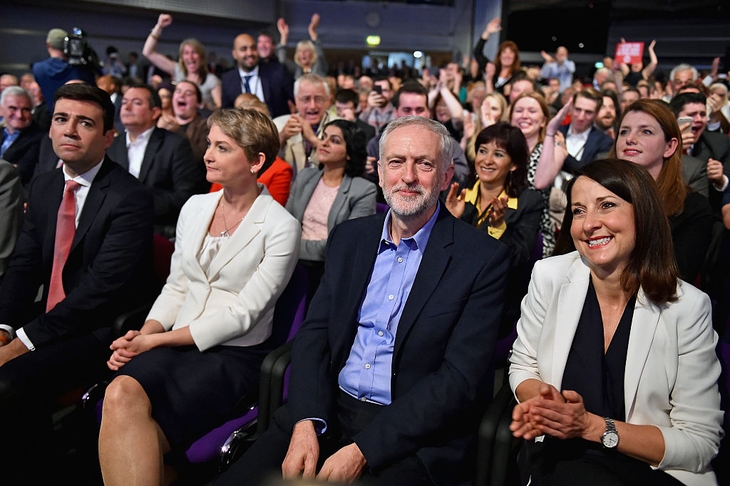Labour, as we know, is a party which has fallen into the hands of a dreamy left-wing idealist who is out of touch with the public, and who has managed to push out the party’s down-to-Earth moderates – people who, like Tony Blair, understand that if Labour wants to win power it must appeal to broad swathes of Middle England. That, at least, is how it seemed until this week. But it all looks a little different after 20 backbench Labour MPs defied the whips to vote against the Chancellor’s decision to raise income tax thresholds. Jeremy Corbyn had instructed his MPs to abstain.
It is astonishing to read the names of the rebels: Yvette Cooper, Liz Kendall, Lucy Powell, Jess Phillips, Margaret Hodge. These are supposed to be Labour’s heirs-to-Blair – the wing of the party desperate to return it to the centre ground. But they seem to have a poor understanding of how Blair won power. Crucially, the former PM and his Chancellor, Gordon Brown, assured middle income taxpayers that they would not raise income tax rates – and stuck to their promise for a whole decade. By doing so, they won the trust of voters who had been put off voting Labour in 1992 when Neil Kinnock was promising higher tax rates for middle earners.
The charge against Hammond’s income tax changes – that they benefit the ‘rich’ while doing nothing for the poor – don’t stand up. No-one earning over £125,000 a year will have anything to gain whatsoever as their tax-free allowance will continue to be reduced to zero. While it is true that someone on £100,000 a year will get to keep a larger sum than someone on £20,000, proportionally the biggest beneficiaries are those earning £12,500 and £50,000 a year – many of the latter will fall into the category of ‘zero hours’ around which Labour focuses so much of its campaigning. As for those on £50,000 a year, that includes a huge swathe of senior teachers, nurses and other public sector workers who ought to form a bedrock of Labour support. In any case, if you offer someone a substantial tax cut their attitude is more likely to be one of pleasure than one of anger that someone else is getting an even bigger one.
John McDonnell quickly realised this, which is why he said he wouldn’t oppose the rise in allowances, but would stick instead to his proposed tax rises on those earning more than £80,000. In doing so he showed himself more politically astute than those on the right of the Labour party whose electioneering skills have clearly gone somewhat rusty.
Barring a major Tory scandal or truly chaotic Brexit I don’t think Corbyn can quite win an election – he has too much baggage to win over middle-aged and older voters. But on this week’s evidence Labour has a better chance of returning to power under him than they would under Yvette Cooper, Liz Kendall and Andy Burnham – the ‘moderates’ who stood against Corbyn for the leadership in 2015.







Comments